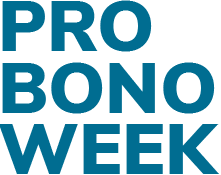When Robert and Nathan Gale had some good news, they headed to town to celebrate. However, their night out in Glasgow came to abrupt end when they were refused entry to a nightclub they had visited many times before.
They weren’t wearing the wrong shoes. They weren’t drunk. They weren’t aggressive. Yet they were told they could not enter the club because they were disabled and the venue could not accommodate wheelchair users. Robert, who has cerebral palsy, proved that he did not need a wheelchair ramp, but after he had entered the club, staff refused to let Nathan take his wheelchair to him. The nightclub staff called the police when Robert joined other clubbers on the dancefloor.
Nathan, who is an equality campaigner, recognised that this was not only unfair, but potentially in breach of the Equality Act 2010. A graduate of the University of Edinburgh’s Diploma in Professional Legal Practice, he had volunteered with the Free Legal Advice Centre (FLAC), a student-led service at the University that offers pro bono legal help to the community. It was to FLAC that Nathan now turned.
FLAC’s volunteers referred the case to the Faculty of Advocates’ Free Legal Services Unit (FLSU). Nathan and Robert, represented by FLSU advocate Russell Bradley and with support from FLAC student volunteers David Gray and Kirsty McGeough, took legal action against the nightclub’s owners.
“The support we received from FLAC was incredible”, says Nathan. “If they had not given us such encouragement I honestly don’t think we would have pursued our discrimination case. Thanks to the wonderful staff and students who run FLAC, as well as the FLSU, my partner and I were able to seek justice for the terrible discrimination that we suffered.”
The Glasgow Sheriff Court ruled that it was a case of disability discrimination, and the nightclub owners were ordered to pay £2,000 in compensation. Finally, Nathan and Robert were able to enjoy those celebratory drinks.
This case is not only an inspiring example of collaboration between legal professionals and law students dedicated to helping those in need, but it also turned out to be a landmark case, one of a small number of civil cases seen in Scotland under the Equality Act relating to access to commercial premises for disabled people.
